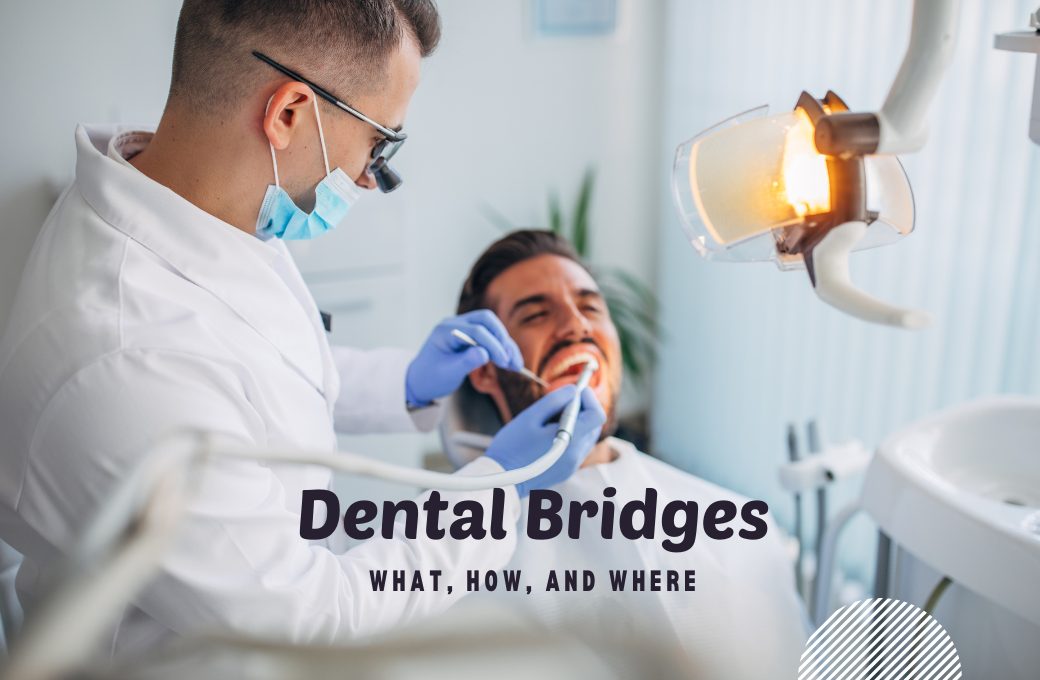Why Choose a Ceramic Crown Tooth for Optimal Strength?
Discover why a ceramic crown tooth offers unmatched strength & aesthetics. Learn about benefits, process & trusted care at GB Dentistry in Memorial, Houston.

A dental bridge is more than just a solution for missing teeth; it’s a gateway to renewed confidence and a restored smile. For residents in the Memorial area of Houston, understanding the fundamentals of dental bridges is the first step toward reclaiming the functionality and aesthetics of your smile.
In this blog, we will explore what dental bridges are, delve into their various types, and discuss the procedures involved in obtaining one. Whether you’re considering a dental bridge for the first time or looking to learn more about your existing restoration, this blog will provide you with the essential information you need.
A dental bridge is a custom-made replacement for one or more missing teeth that literally “bridges” the gap in your smile. At its core, a bridge comprises one or more artificial teeth, known as pontics, which are held in place by the teeth on either side.
Take it as a bridge over a river: just as a bridge connects both riverbanks, a dental bridge connects the gap in your smile caused by missing teeth. Anchored securely on either side by your natural teeth, or sometimes implants, these artificial teeth (pontics) fill the empty space, restoring the continuity of your smile. Just as a well-constructed bridge supports heavy footfalls and withstands the tests of time, a dental bridge provides a durable and reliable foundation for chewing, speaking, and smiling confidently, withstanding the tests of time.
Dental bridges come in four varieties, each designed to serve different dental needs. Here’s a closer look at four common types of dental bridges:
Getting a dental bridge involves a series of steps, which can vary depending on the type of bridge chosen. Here’s what you can expect during the process of getting a dental bridge at GB Dentistry under the expert care of Dr. Bharwani:
The entire process for getting a dental bridge can range from a few weeks for traditional and Maryland bridges to several months for implant-supported bridges, primarily due to the healing time required for implants.
Throughout every step, Dr. Bharwani and the team at GB Dentistry in the Memorial area ensure that each patient receives thorough, personalized care.
Also Read: Bridge for Back Teeth vs. Implants
Dental bridges offer several advantages, making them a popular choice for those looking to restore their smile after losing one or more teeth. Here are some of the key benefits:
While dental bridges are highly beneficial, there are some drawbacks to consider:
By weighing these benefits and drawbacks, patients at GB Dentistry can make a well-informed decision about whether a dental bridge is the right solution for their dental needs. Dr. Bharwani is always available to discuss these options, ensuring that each patient receives the best possible care.
Also Read: How Much Does a Dental Bridge Cost in Houston?
Choosing the right solution for missing teeth is a significant decision that affects not only your oral health but also your overall well-being and confidence. Dr. Bharwani and the team at GB Dentistry in Memorial, Houston, are dedicated to providing personalized, comprehensive care to help you make the best decision for your dental health.
If you are considering a dental bridge or need expert advice on your options for replacing missing teeth, Dr. Bharwani is here to assist. With extensive experience in restorative dentistry, Dr. Bharwani can evaluate your specific needs and recommend the most suitable type of dental bridge, ensuring that you receive a solution that looks natural, feels comfortable, and serves you well for years to come.
Key Benefits of Consulting Dr. Bharwani:
Whether you’re just beginning to explore dental bridges or are ready for a replacement, let Dr. Bharwani help you navigate your dental journey. Request an appointment with Dr. Bharwani today and take the first step towards a brighter, more confident smile. You can like our Facebook page and follow us on Instagram as well.
Most patients adjust to their new dental bridge within a few weeks. Initially, it may feel a bit unusual to have the bridge, especially when eating or speaking, but this sensation typically goes away as you become used to the bridge.
On average, dental bridges can last between 5 to 15 years, depending on the type of bridge, the materials used, and how well it is maintained. Regular check-ups with GB Dentistry and good oral hygiene can extend the life of your bridge.
Dental bridges are designed to look like your natural teeth and are custom-made to match the color and shape of your existing teeth. When our expert dentists in Memorial take care of it, they are not easily noticeable and can enhance the overall appearance of your smile.
Yes, after a brief adjustment period, you should be able to eat normally with your dental bridge. Dr. Bharwani advises starting with softer foods and gradually reintroducing harder foods as you become more comfortable with the bridge.
Caring for a dental bridge is similar to caring for your natural teeth. Brush twice a day, floss daily, and use an antiseptic mouthwash to help prevent decay and gum disease. Special flosses and other interdental cleaners can help clean hard-to-reach areas around the bridge.
At GB Dentistry, the dental bridge procedure is usually performed with local anesthesia, so it should not be painful. Some mild discomfort or sensitivity may occur after the anesthesia wears off, but this can typically be managed with some over-the-counter pain relievers.
A dental bridge can last 10 to 15 years or more with proper care, including good oral hygiene and regular dental visits. GB Dentistry uses durable, high-quality materials to ensure your bridge provides long-lasting function and aesthetics. We also offer expert guidance on maintaining your bridge for maximum longevity.